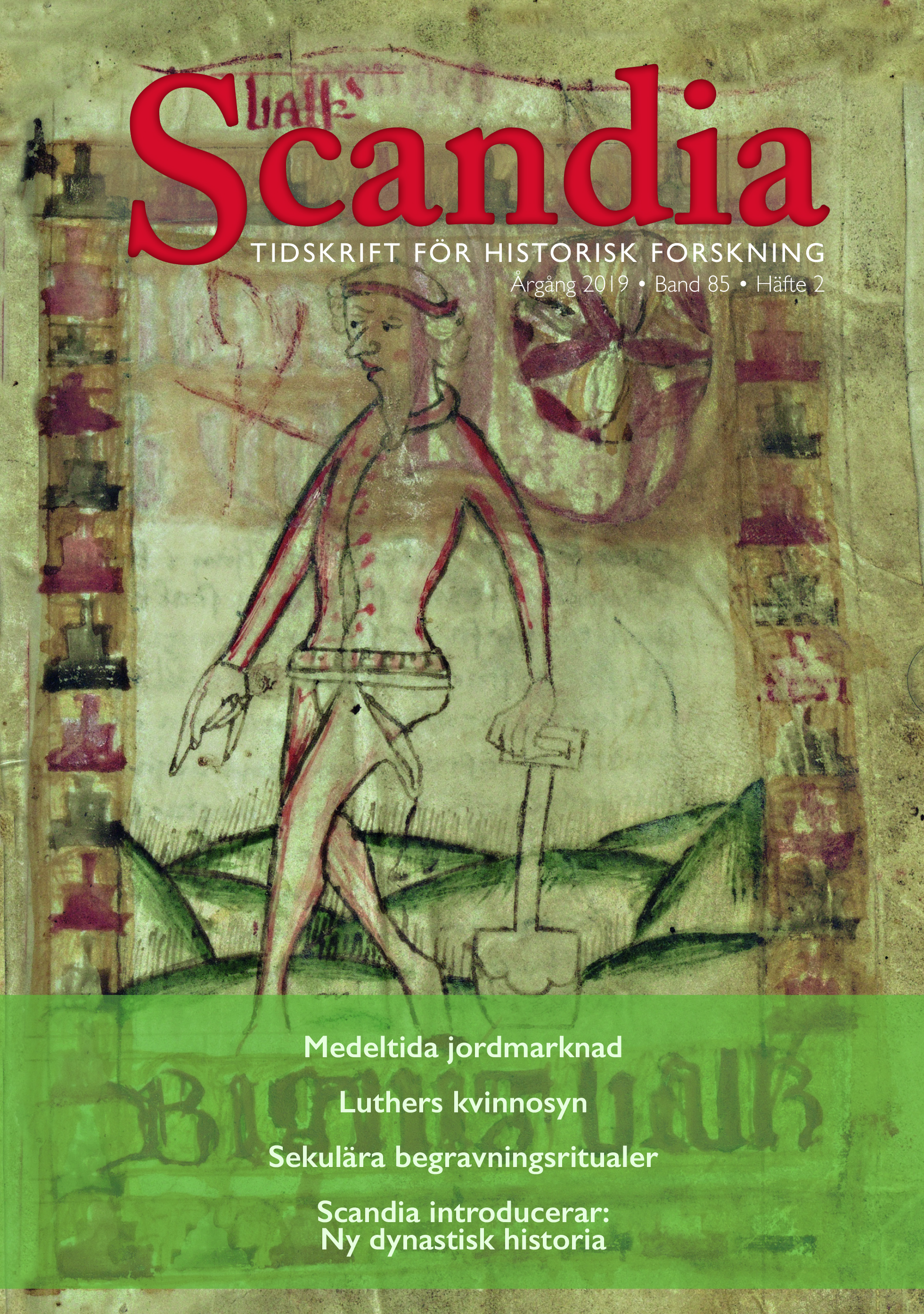Martin Luthers syn på kvinden som hustru og hersker
Keywords:
confessional culture, sin, household, trust, Luther's view of womenAbstract
This article offers a theological analysis of Martin Luther’s complex view on women and their role in society with the aim of informing future historical studies on the influence of this view on Lutheran confessional culture in post-reformation Scandinavia. Luther’s conception of women is characterised by an ostensible paradox. On the one hand, Luther maintains that all women are equal to men in relation to God and created to rule over the earth. According to Luther, women execute their God-given power to rule in the household, which they manage together with their husbands. On the other hand, however, Luther passes on a traditional view of women being of a weaker nature than men and argues that wives have to subordinate to
their husbands in order to suppress sin and tame this weak nature.
In this article, I argue that this paradox mirrors the view on women in the two biblical creation narratives. The first narrative emphasises the common dominion of both men and women over the earth, whereas the second narrative unfolds the divinely sanctioned role of women as subordinate to men. Moreover, I claim that Luther’s creation-theological view on women must be understood in light of his doctrine of justification, which argues that men and women alike are determined by both sin and righteousness. As righteous, women are equal to men in their relation to God and are part of the common priesthood of all believers, whereby they become priests with authority to teach and kings ruling over a spiritual realm. According to Luther, faith authorises both men and women to manage their own relationship to God without ecclesiastical intermediaries. Luther even claims that both sexes are allowed to break with their obedience to authorities that interfere with their relationship with God. As sinners, though, women have to subordinate to their husbands in order to suppress sin. Moreover, both men and women have to obey the prince and other earthly authorities acting as representatives of God.
In this way, Luther’s view on women is defined by his paradoxical theological anthropology, which argues that both men and women are free, equal, and capable of maintaining loving and trusting relationships with God and fellow human beings through faith while remaining sinners in need of earthly authorities to suppress their sin. On this basis, I analyse Luther’s view on women as presented in his exposition of the Creation narrative and the Fall narrative in the Lectures on Genesis. Finally, I discuss whether Luther’s view on women leads to patriarchal social structures imprisoning women in their homes or whether the freedom and equality of the spiritual realm over time filters through to the understanding of the role of women in society and – together with Luther’s emphasis on female authority in the household – paves the way for the liberation of women.





